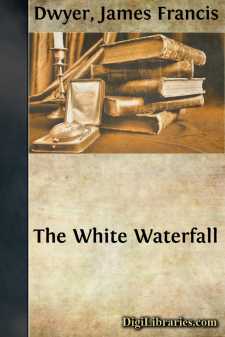Categories
- Antiques & Collectibles 13
- Architecture 36
- Art 48
- Bibles 22
- Biography & Autobiography 813
- Body, Mind & Spirit 142
- Business & Economics 28
- Children's Books 17
- Children's Fiction 14
- Computers 4
- Cooking 94
- Crafts & Hobbies 4
- Drama 346
- Education 46
- Family & Relationships 57
- Fiction 11829
- Games 19
- Gardening 17
- Health & Fitness 34
- History 1377
- House & Home 1
- Humor 147
- Juvenile Fiction 1873
- Juvenile Nonfiction 202
- Language Arts & Disciplines 88
- Law 16
- Literary Collections 686
- Literary Criticism 179
- Mathematics 13
- Medical 41
- Music 40
- Nature 179
- Non-Classifiable 1768
- Performing Arts 7
- Periodicals 1453
- Philosophy 64
- Photography 2
- Poetry 896
- Political Science 203
- Psychology 42
- Reference 154
- Religion 513
- Science 126
- Self-Help 84
- Social Science 81
- Sports & Recreation 34
- Study Aids 3
- Technology & Engineering 59
- Transportation 23
- Travel 463
- True Crime 29
Sort by:
by:
Walter Walden
WE GET INTERESTING NEWS It was on a tropic sea, and night, that I heard a little scrap of a tale that had in it that which was destined to preserve my life. The waning moon had not yet risen; the stars were all out, the Milky Way more than commonly near. The schooner's sails were barely drawing, and flapped idly at times. I leaned on the rail, listening to the purling of the sea against the...
more...
by:
Louis Becke
Crossing from Holyhead to Ireland one night the captain of the steamer and myself, during an hour's talk on the bridge, found that we each had sailed in a certain Australian coasting steamer more than twenty years before—he as chief officer and I as passenger; and her shipwreck one Christmas Eye (long after), which was attended by an appalling loss of life, led us to talk of "pig-headed"...
more...
by:
Stephen Marlowe
dam Slade crushed the guard's skull with a two foot length of iron pipe. No one ever knew where Slade got the iron pipe, but it did not seem so important. The guard was dead. That was important. And Slade was on the loose. With a hostage. That was even more important. The hostage's name was Marcia Lawrence. She was twenty-two years old and pretty and scared half out of her wits. She was,...
more...
"NOT GUILTY." Gentlemen of the Jury: I stand before you charged with an attempt to "remove" the people of America by the publication of a new book, and I enter a plea of "Not Guilty." While admitting that the case looks strong against me, there are extenuating circumstances, which, if you will weigh them carefully, will go far towards acquitting me of this dreadful charge. The...
more...
by:
Tom Leahy
The little man said, "Why, Mr. Bartle, come in. This is indeed a pleasure." His pinched face was lighted with an enthusiastic smile. "You know my name, so I suppose you know the Bulletin sent me for a personality interview," the tall man who stood in the doorway said in a monotone as if it were a statement he had made a thousand times—which he had. "Oh, certainly, Mr. Bartle. I...
more...
CHAPTER I THE SONG OF THE MAORI There is a Tongan proverb which tells us that only fools and children lie awake during hours that could be devoted to slumber, and it is a wise proverb when you judge it from a Polynesian standpoint. No special preparations are required for slumber in the last haunts of Romance, and as one does not lose caste by dozing in public, the South Sea dweller sees no reason for...
more...
by:
Anonymous
Nehemiah 1:1 The words of Nehemiah the son of Hacaliah. Now it happened in the month Chislev, in the twentieth year, as I was in Shushan the palace, 1:2 that Hanani, one of my brothers, came, he and certain men out of Judah; and I asked them concerning the Jews who had escaped, who were left of the captivity, and concerning Jerusalem. 1:3 They said to me, The remnant who are left of the captivity there...
more...
From even the greatest of horrors irony is seldom absent. Sometimes it enters directly into the composition of the events, while sometimes it relates only to their fortuitous position among persons and places. The latter sort is splendidly exemplified by a case in the ancient city of Providence, where in the late forties Edgar Allan Poe used to sojourn often during his unsuccessful wooing of the gifted...
more...
by:
Various
THE SHEPHERD-BOY.BY EMILY S. OAKEY.Little Roy led his sheep down to pasture,And his cows, by the side of the brook;But his cows never drank any water,And his sheep never needed a crook.For the pasture was gay as a garden,And it glowed with a flowery red;But the meadows had never a grass-blade,And the brooklet—it slept in its bed;And it lay without sparkle or murmur,Nor reflected the blue of the...
more...
by:
Jules Lermina
FANFARO'S ADVENTURES Spero, the son of Monte-Cristo, was peacefully sleeping in another room, while, gathered around the table in the dining-room of Fanfaro's house, were Monte-Cristo, Miss Clary, Madame Caraman, Coucou, and Albert de Morcerf, ready to listen to the story of Fanfaro's adventures, which, as narrated at the close of the preceding volume, he was about to begin. The...
more...











